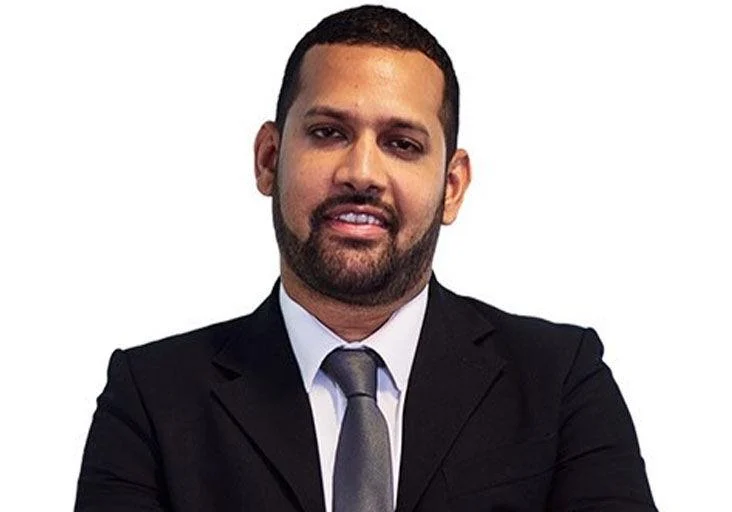August 24, 2024 | Category: In the News/Media Releases
Cashless society needed for financial inclusion

HESITANCY to embrace a cashless society remains evident, as a survey conducted by the European Union and the United Nations Capital Development Fund reveals a strong preference for cash savings among citizens.
However, John Outridge, chief executive officer of the Trinidad and Tobago International Financial Centre (TTIFC), suggests moving towards a cashless system may be the only path to achieving full financial inclusion.
Speaking to the Express Business at the TTIFC’s One FinTech Avenue, Outridge said, “What that (a cashless society) really means is making sure citizens have access to a transaction account bringing them into the formal economy, because the idea is more people who are transacting outside of cash, those funds remain in the system, and those people are now able to borrow, have access to other services, insurance, loans, et cetera.”
He said overall, the economy would benefit from becoming cashless, as this would promote equality for everyone and reduce the use of cash, which lacks transparency in its usage. While acknowledging that cash is a “delicate thing” for the average citizen, he noted that with the rise in petty theft, carrying cash can be unsafe.
To help people transition and become accustomed to cashless options, the TTIFC focused on implementing these options at government offices, as almost everyone eventually needs to make transactions with State enterprises. He described this as a good “proving ground” to familiarise citizens with the service.
Over 50,000 using digital
Government services
Speaking at the launch of the Financial Inclusion Survey on August 16, TTIFC chairman Richard Young noted that over $25 million was processed through TTIFC’s cashless services in just one year. He said:
“Implementing digital payments in governmental and other financial services is essential for combating corruption and enhancing service performance, as well as financial accountability.
“Additionally, we have already witnessed its impact on ensuring uninterrupted business operations after the recent global IT service disruption due to the CrowdStrike update. Amid a global event that brought some of the world’s largest corporations to a halt, our Government’s digital payment channels, enabled by TTIFC’s eCashbook system, remained operational,” said Young.
He noted more than 50,000 residents now use digital transactions for various governmental services, including the HDC’s e-Pay portal, the Ministry of Trade and Industry’s TTBizLink, the Environmental Management Authority’s Certificate of Environmental Clearance application system, and the updated voucher system of the Judiciary.
Outridge said the survey revealed that about 20% of people use Linx, credit cards, and online banking transactions, while 65% still rely on cash.
He emphasised that at-risk groups include the youth, homemakers—who are primarily women—and the elderly.
“We need to reduce that (65% who use cash). But more importantly, we need to focus on those most vulnerable groups, because that could be contributing heavily to the usage of cash. Some of the top usages…were retail (groceries, shopping); paying educational expenses (lessons teachers, school fees); health services; and buying top-ups for cellphones,” Outridge said.
In addition to these at-risk groups, Outridge said the survey also uncovered that over 70% of micro merchants lack a business bank account: they do transactions using personal accounts.
He said conducting business transactions through a personal account limits a business’s access to essential financial services.
“There’s no track record of what they have been doing; and more importantly, the money is coming to their personal account, so technically, there’s no record of the business. We know that micro, small, and medium enterprises (MSMEs) are the lifeblood of the economy,” he said.
Outridge said the low use of cashless services from financial institutions might be due to a mismatch between the services offered and actual citizen needs.
“A perfect example of this is micro-merchants. They want to transact digitally, but they also want cost-effective means to receive payments. Most people cannot afford the rental of a point-of-sale machine,” he said.
He added that not only will MSMEs thrive and people gain a sense of financial inclusion, but cashless transactions also offer a safer alternative to handling cash.
Education for
vulnerable groups
“Digital payments give you that sense of security; and in almost every scenario, if a fraud happens while using a digital payment mechanism, there is some form of recourse built in,” Outridge said.
He cited examples of these resources as the Financial Ombudsman, financial institutions, and merchants.
Speaking about fraud attempts, he said, “Your money doesn’t just disappear—it’s there. I think the response times are getting a lot better; but I understand the anxieties…”
Outridge said that an anxiety people feel stems from the desire for instantaneous transfers. He noted that a major stumbling block has been delays in fund transfers between bank accounts, which leads people to prefer cash over cashless options.
“I think that, really, is where the meeting in the middle is. If we are able to achieve that level of instantaneous payment in terms of value exchange, I think that will absolutely…drive the confidence,” he said.
Outridge was also asked about the issue of fabricated online receipts that some users receive after making transfers. He explained that with instantaneous transfers, individuals would see the added funds in their accounts immediately, leaving no room for falsified receipts. He cited PayWise, a cashless app, as an example of a service that offers instant transactions.
When asked about the potential for criminal activity adapting to a cashless society, Outridge advised people to practice “good cybersecurity hygiene.” He recommended changing passwords regularly, avoiding the use of open networks, and following other security best practices to protect financial transactions.
Regarding vulnerable groups like the elderly, Outridge emphasised the need for extensive consumer education, awareness campaigns, and training. He shared a personal experience where his 86-year-old grandmother fell victim to a scammer posing as a doctor’s office, requesting her credit card information for an appointment. This incident left her so paranoid that she became fearful of answering her phone.
“People are still going to be apprehensive, but we need to be able to outweigh the benefits of doing it digitally versus cash, because, in any event, mobility is a challenge for them (elderly people),” he said.
Outridge suggested that one effective approach for educating the elderly might involve using relatable examples from their daily lives. For instance, teaching them to use WhatsApp to stay connected with their grandchildren or helping them set up a credit card and bank account for purchasing gifts could provide practical, motivating reasons to adopt new technologies.
